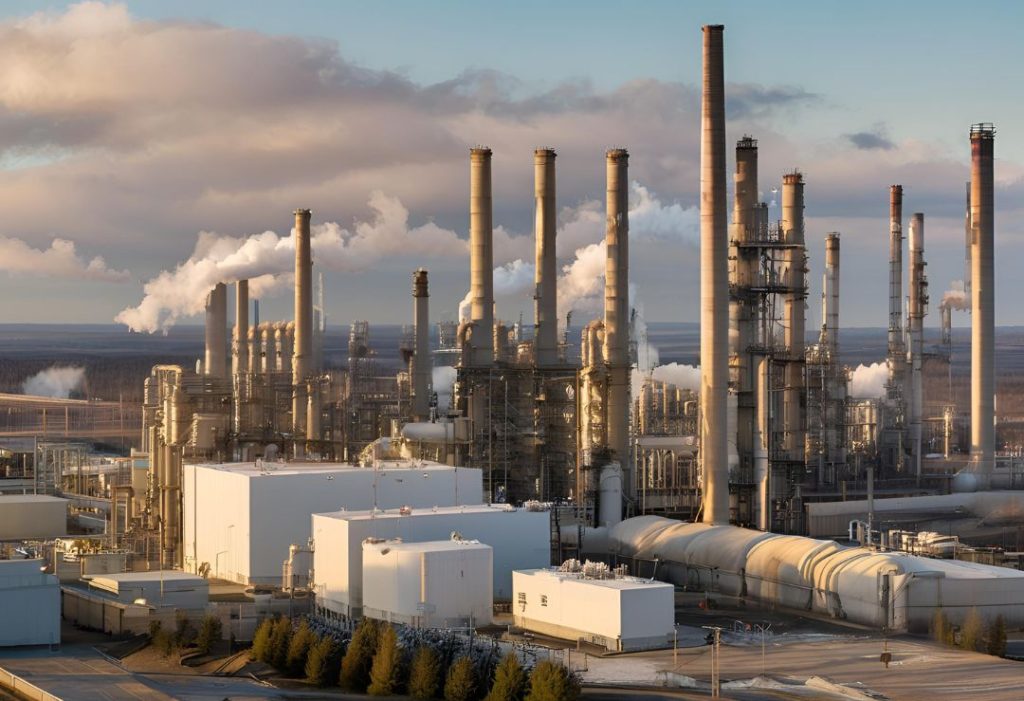The Center for Public Integrity (CPI) has a fascinating new piece, Big Polluters Freed from Environmental Oversight by Stimulus.
According to CPI:
The administration has awarded more than 179,000 “categorical exclusions” to stimulus projects funded by federal agencies, freeing those projects from review under the National Environmental Policy Act, or NEPA. Coal-burning utilities like Westar Energy and Duke Energy, chemical manufacturer DuPont, and ethanol maker Didion Milling are among the firms with histories of serious environmental violations that have won blanket NEPA exemptions.
Why are we stimulating the economy by giving tax money to the dirtiest and most highly profitable corporations on earth? First there’s the unavoidable messiness in dumping a lot of money into the economy quickly. As Jonathan Hiskes of Grist writes, “It’s difficult to spend money both quickly and smartly.”
And, maybe it wasn’t easy or even possible to move a huge amount of money mostly or even significantly through the clean energy sector. Hiskes quotes Pete Danko of EarthTechling with the following analogy: “To nab mobsters, law enforcement has to do business with some pretty unsavory characters. A similar reality might be at play in the U.S. government’s pursuit of job-creating clean-energy projects.” After all, cleantech hasn’t been on billions in annual government welfare for years, like coal and oil have.
Then there’s the business-as-usual ethic at play. According to the CPI story, “Agency officials who granted the exemptions told the Center that they do not have time in most cases to review the environmental compliance records of stimulus recipients, and do not believe past violations should affect polluters’ chances of winning stimulus money or the NEPA exclusions.” That may be the case, but it’s also true that “Over the last year and a half, federal agencies have relied on regulatory fiat to create exemptions for stimulus projects under existing NEPA regulations, which allow for exclusions of whole categories of actions the government determines won’t ‘individually or cumulatively have a significant effect on the human environment.’” It’s also true that this “speedy review process” relies on “voluntary disclosures by companies” as to whether or not they “pose environmental harm.”
I don’t know about you, but I’m tired of reliance on “voluntary” anything from the people who are blocking America’s clean energy progress. The dirty energy lobby shouldn’t get to serve as player-ref in a game with billions of our tax money up for grabs. We’d also refer you to what happened when BP did its own internal review of last summer’s Gulf of Mexico oil disaster.
But an additional factor in dirty energy’s big haul on the stimulus is that they found takers in the mass of bureaucrats and appointees well below the senior White House staff level. There were dozens of people, in all likelihood, who were willing to cut deals with dirty energy lobbyists because of pressure from pro-dirty energy electeds in Congress, their own career interests and a simple lack of commitment to carry out the President’s pro-sustainability direction. (Note: This tilt towards dirty energy comes in spite of the fact that the American people rate renewable energy far higher than dirty energy – 80% favorable for solar, 76% for wind, just 32% for oil and 29% for coal, according to recent polling by the Gotham Research Group.)
We’ve been making the case repeatedly that private-sector cleantech players need to pay much more attention to the growing lobbying and propaganda muscle of dirty energy. Many are paying attention, but others dismiss the notion. They shouldn’t. Dirty energy’s surge here is going to have real market consequences, and putting billions of dollars of our tax money at their disposal to compete with cleantech is the most recent “Exhibit A.” Wake up, sleepers.

